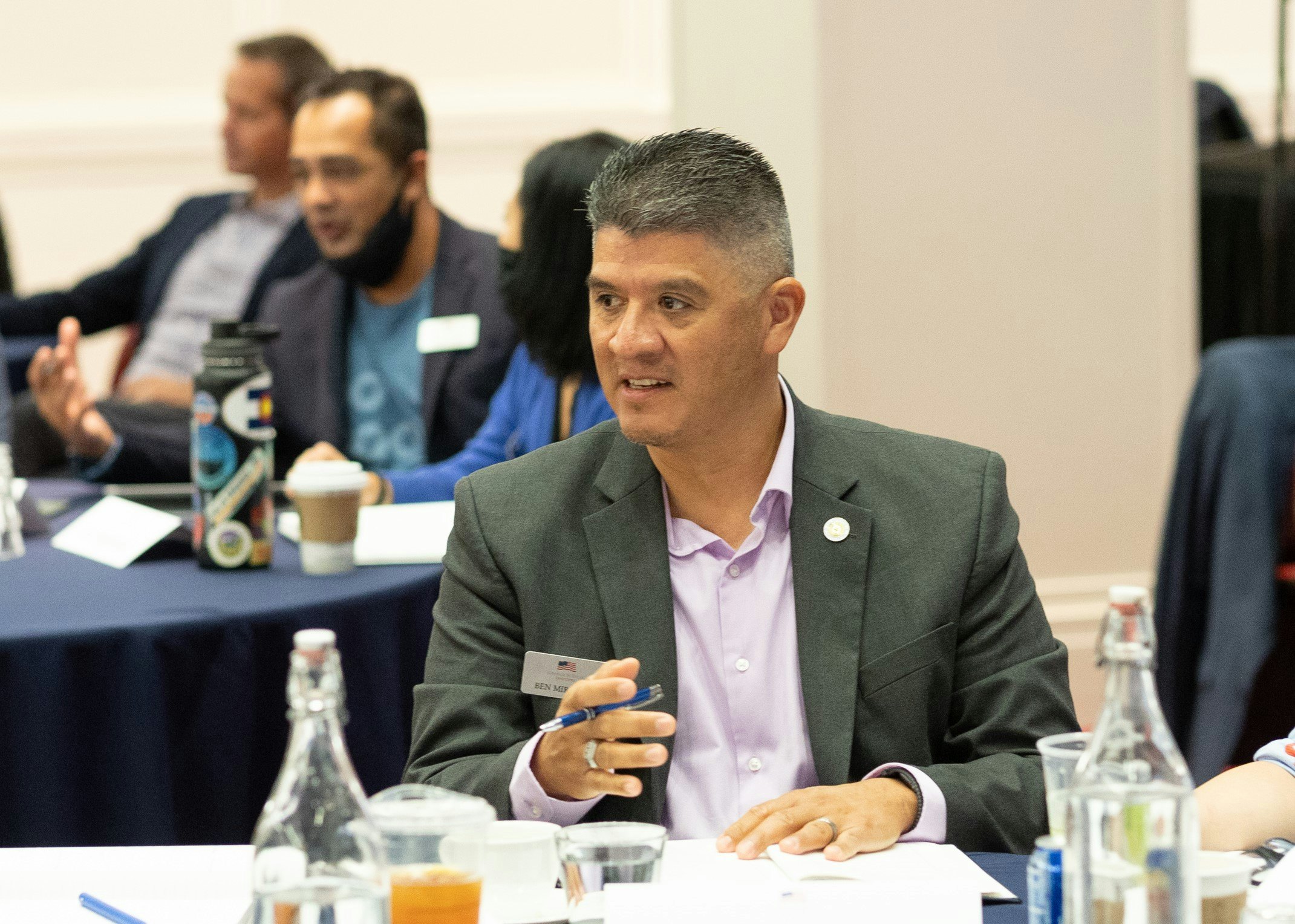This week, the Bush Institute’s Military Service Initiative partnered with the U.S. Chamber of Commerce’s Hiring Our Heroes initiative and the United Service Organizations (USO) to host an event that highlighted the resources and careers available to transitioning service members, veterans, and their spouses. As we dive into this important issue, the Bush Institute is publishing a series examining the important role that employers and non-profits play in veteran transition and recommendations on how to leverage a veteran’s leadership talent.
Today, Spencer Milo, the Area Manager for Hire Heroes USA and a veteran, discusses his own personal transition from the military and offers helpful insights for those beginning their transition process.
Can you tell me about your own personal transition from the military to the private sector?
My personal transition out of the military was not all that different from everyone else’s. Picture a highly motivated Infantry Staff Sergeant, married with a two month old, and ready to make a career out of the military. But then I was medically retired due to my injuries from both of my deployments. The emotions I felt were helplessness, fear, anger, and depression, all wrapped into one. I was scared to death that I was no longer going to be able to provide for my family and I had no idea who I was without the uniform on.
As my retirement approached, I attended a two-day transition workshop hosted by Hire Heroes USA. I was very bitter going into it and was convinced that even though I was terrified, I could figure this out on my own and didn’t need any help. Boy was I wrong. After sitting through this two-day workshop, I realized how unprepared I was. I also gained tools I needed to become prepared.
I tailored my resume to translate my military skills into a language that civilians would understand. I realized I did not have to become a police officer or security guard because I was from a Combat Arms MOS. I also learned that asking for help and swallowing my pride would be paramount in successfully transitioning.
Things were still challenging and stressful but I knew I could figure it out. I began networking with contacts from both my civilian life prior to the military and with my peers in my transition class. I landed a great job working with veterans and it just so happened to be with Hire Heroes USA in Colorado.
What did you find to be most helpful when seeking a job after leaving the military?
The most helpful thing I utilized through my transition was networking. We have all heard the “it’s all about who you know” line and in some ways, it is very true. I reached out to everyone I knew in an effort to get my foot in the door.
But honestly, swallowing my pride was invaluable because it enabled me to accept the generous offers of help from friends, family, fellow transitioning service members, and the various organizations that are out there.
How do you use the skills you gained in the military in your job today?
I use the skills I gained from the military every day. I served in the infantry and my training began on day one. Organizational skills, leadership skills, teamwork, critical thinking, strategic planning, hard work, and a high level of technical proficiencies.
I just had to reroute my mission, but my skillset has never been weakened because I stepped out of the uniform.
Given that Hire Heroes USA helps veterans secure employment, what would you say is the most common issue veterans face when the begin applying for jobs?
Here are two issues that are common:
- Unrealistic expectations: I see this everyday with the men and women I work with. Whether it is an expectation of walking into the exact same salary, the exact same level of responsibility, or a sense of entitlement because someone served in the military.
“I was a Platoon Sergeant so I should be a Senior Operations Manager.” In my experience, that is unrealistic. Whether you joined as an enlisted person or a commissioned officer, you had to start at the bottom. The military promotes from within and the civilian sector is no different. Don’t be afraid to get your foot in the door and prove why you should be promoted quickly.
- Stereotypes: There are some negative stereotypes for transitioning service members. But there are simple ways to combat the negative connotations associated with veterans.
Ways you can combat general stereotypes: Dress professionally, greet your interviewers normally, be articulate and confident in yourself. Use the professionalism you learned in the military and when you walk into that interview with a well-written and well-worded resume, you will demonstrate what the military has ingrained in you.
What would you say to others who are struggling with their transition?
Swallow your pride and realize you are not alone, you are not the only person transitioning that is scared. There are so many people and organizations that want to help get you through this as seamlessly as possible.
Lastly, be confident and proud of your service. Don’t forget about it, but don’t let that be the only thing in your life. Accept and embrace this new challenge in front of you and keep reminding yourself that you can do this.






























